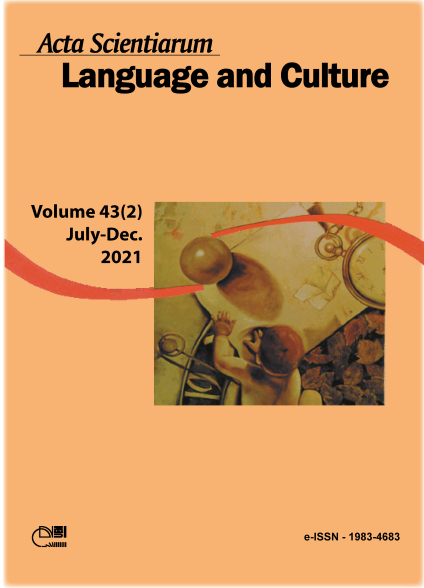Argumentative letter genre and the vandalism theme
Abstract
In the contemporaneity it is necessary to educate citizens with the capacity to communicate significantly so they can interact in a plurality of communicative situations, digital or not. Among so many demands, sometimes social, sometimes institutional, the literacy project is an opportunity for teachers and students to get closer to working with language in social use. This paper aims at sharing experiences of an organized literacy project in order to carry out a set of activities with reading and writing as social practices. It is an intervention proposal developed in a state school in the north of Mato Grosso State, with a 9th grade class. The problem situation arose from a fact narrated and debated informally by the students in the classroom regarding to vandalism at school. The theoretical basis has followed the perspective of a literacy project by Kleiman (2009) and Oliveira, Tinoco and Santos (2014), as well as the studies developed for Marcuschi (2004, 2008), Bortoni-Ricardo (2008), Rojo (2007, 2009), Rojo & Moura (2012), Dolz, Noverraz and Schneuwly (2004), among others. It has been looked for to reconcile study and dialogue, since in the literacy project students are also agents of their learning, reading and production, providing a reflective and collaborative space. The results show that the activities provided an advance in the students’ writing skills, as well as in their argumentative competence. Through the interaction with digital technologies, they built knowledge in relation to the studied social phenomenon. They developed security and autonomy, and the most relevant, out of self-interest.
Downloads
DECLARATION OF ORIGINALITY AND COPYRIGHTS
I Declare that current article is original and has not been submitted for publication, in part or in whole, to any other national or international journal.
The copyrights belong exclusively to the authors. Published content is licensed under Creative Commons Attribution 4.0 (CC BY 4.0) guidelines, which allows sharing (copy and distribution of the material in any medium or format) and adaptation (remix, transform, and build upon the material) for any purpose, even commercially, under the terms of attribution.
Read this link for further information on how to use CC BY 4.0 properly.




















6.png)









